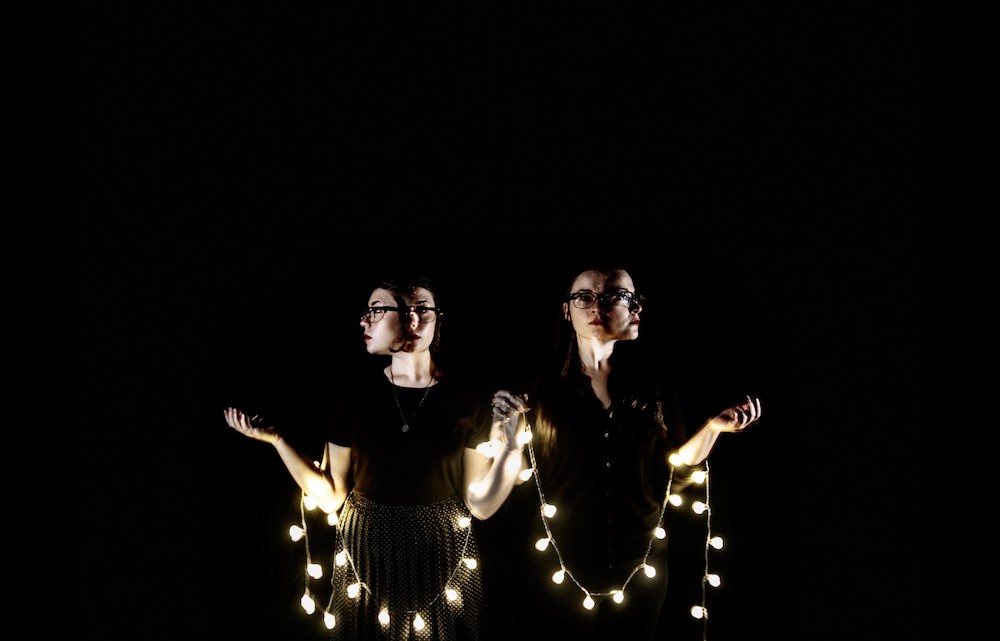Most Orlandoans likely spent Thanksgiving week scurrying around the supermarket, sprinting to Black Friday sales and slogging through the theme parks. But on Turkey Day Eve, I went strolling around Homer's Ithaca, sightseeing spots immortalized in The Odyssey, one of Western literature's greatest epics. Here, the fountain where the Oracle-cursed infant was saved from drowning by ducks; there, the balcony where the wedding feast was celebrated with song; and over there, the alleyway where the faithful wife's ravaged maids nursed their wounds.
My abbreviated tour of the ancient Aegean city didn't occur in Greece (or upstate New York) but on the grounds of Valencia College's East Campus. And my guide on this time-hopping trip wasn't Virgil's shade, but Rebekah Lane, adjunct professor of theater and director of The Penelopiad, an innovative indoor/outdoor adaptation of Margaret Atwood's novella that opens this Thursday, Nov. 29, for a five-day run.
Atwood (best known for The Handmaid's Tale) authored her reworked version of The Odyssey in 2005, and adapted it herself for a 2007 Stratford-Upon-Avon staging. Lane, assistant director Sara Oliva, sound designer Kevin Becker, and an all-female cast of students and alumna have taken that script and transformed it into an immersive experience in which the audience follows the cast around the school grounds while Odysseus' wife shares her tragic tale as a traveling variety show.
"In the myth, Penelope is held up as this beacon of female modesty and dedication," Lane tells me in the lobby of the arts building, where each show will begin and end. "[In the play], the audience meets Penelope in Hades, and I see this as her perpetual journey, like pushing a boulder up a cliff; she gets to tell this story over and over and over." In under two hours, she leads viewers through 30 years of her life, from birth through the famous reunion with her husband and beyond, while her ill-fated assistants interject their own perspectives into the proceedings.
"When I read it, it really felt like [Epcot ride] Spaceship Earth," Lane quips, explaining the origins of her guided tour-style progressive production. "It lends itself to walk-and-talk." And there's no better town for it, because, according to Lane, "The thing that makes Orlando artists special is that we know how to do interactive and immersive, because we eat, sleep and breathe it."
Valencia's theater department has long wanted to add more shows to its season, but stage space is limited. Jeremy Seghers' site-specific Red Black and Ignorant last year proved outdoor productions to be viable option, and Lane has now greatly expanded on the idea by exploring every crevice of the college's underappreciated campus.
Lane, who holds an MFA in theatre arts from Towson University, has served as a puppetry coach for Rollins College and Phantasmagoria (which, full disclosure, I co-produce), and began her career with MicheLee Puppets. "I intuitively think in puppetry," Lane says after describing a scene in Penelopiad where shadow puppets are projected onto a circular overhead balcony. "Every puppet is different, so there's always a level of discovery, because you're working with handmade items that need to be expressive. What I find is that if you're a diva, you're probably not going to be a great puppeteer, because puppetry is about throwing the focus, sharing the focus."
Rather than dictating blocking to her performers, Lane and her company "devised" the play's movements and use of space by exploring architecture and props using a process developed by the Tectonic Theater Project. And in order to execute this unusually wide-ranging show, she's had to coordinate with multiple school departments, warning security about fight scenes that occur in a courtyard and shifting students in nearby classrooms away from noisy scenes.
Aside from its out-of-the-box staging, Lane says The Penelopiad's subject matter is particularly apropos for our time. "After the election it seemed really relevant. ... What we really end up seeing is this very human woman who was playing by the rules that were set out for her. We're looking at status; we're looking at who makes the rules, who enforces the rules and who is the judge." (Spoiler alert: mostly men.)
As our odyssey comes to an end, Lane praises The Penelopiad for providing her the opportunity to hire a large ensemble female cast. "It's really an amazing group of women," she tells me. "They all came for this not because they knew the play, but because they wanted to celebrate women in an intelligent way. They're smart, they're dedicated, and they're doing even more than I ask of them."


